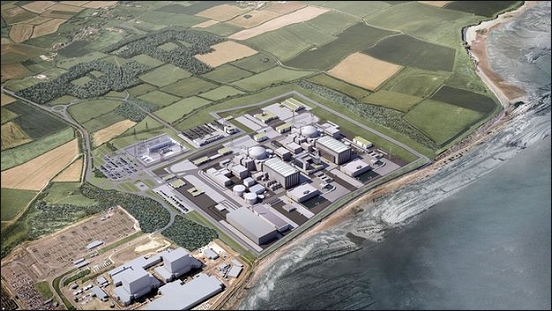Campaigners have this week called for the multi-billion pound Hinkley Point C project near Burnham-On-Sea to be scrapped after technical problems were identified with the nuclear reactors being designed for the power station.
The head of France’s nuclear regulator said weak spots found in the nuclear reactors designed by France’s Areva are “very serious” and could prove costly to rectify.
The ‘anomalies’ found in the bottom and lid of the reactor vessel could reduce the resistance of the metal, according to Pierre-Franck Chevet, head of the ASN regulator.
“This is a serious, even very serious, anomaly as it affects an absolutely crucial reactor component on which no risk of rupture can be taken,” he was quoted as saying in the French press.
Areva has identified weak spots in the steel of the European Pressurised Reactor (EPR) it is building for EDF in Flamanville, France. Mr Chevet said that a similar Areva forging technique had been used for five other EPRs either planned or being built.
Two of these are for Taishan, China and another two are earmarked for Hinkley Point. Components have also been manufactured for one for Calvert Cliffs in America. Areva was not immediately available to confirm whether the vessels for the Hinkley Point project had already been manufactured.
But the Stop Hinkley campaign group’s spokesman Alan Jeffery said this week: “EDF Energy should cut its losses and give up on Hinkley C now, so that the south west can get on with developing a sensible sustainable energy strategy.”
“To tackle climate change effectively we need to get started on energy efficiency and renewable energy programmes now, not waiting around for the nuclear industry to sort out its problems first.”
“We don’t need this massive project that is going to leave us with a legacy of highly dangerous nuclear waste and radioactive emissions into our environment.”
He added: “It now seems inevitable that the Hinkley investment decision will be postponed yet again until the issue of the safety of the French and Chinese pressure vessels has been resolved.”
The EPR is a new-generation pressurised water reactor, built to resist the impact of a commercial airliner crash.







